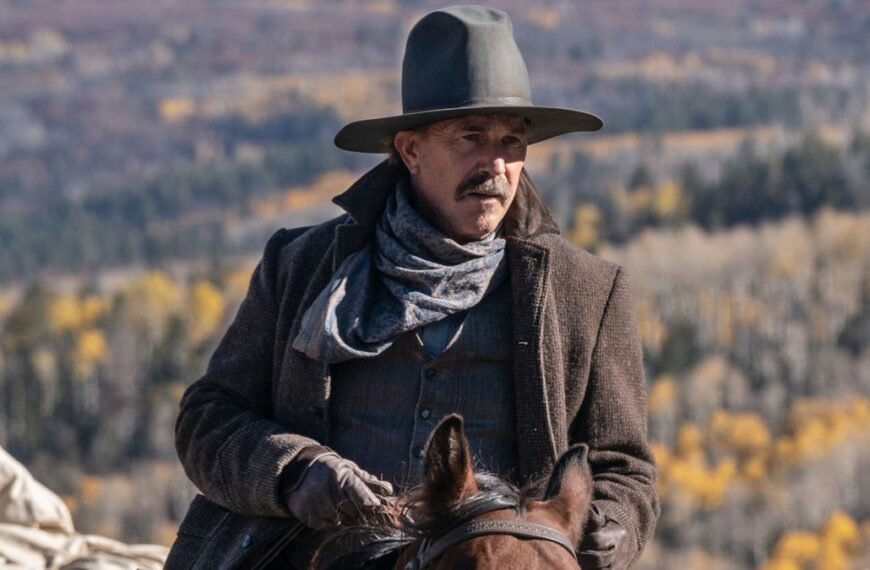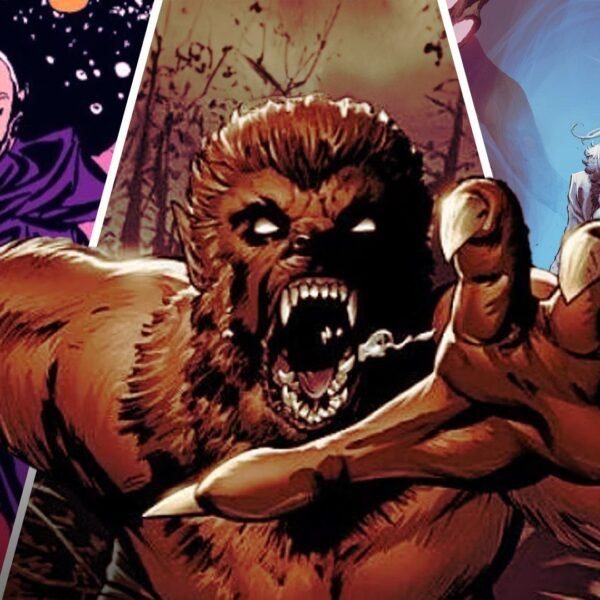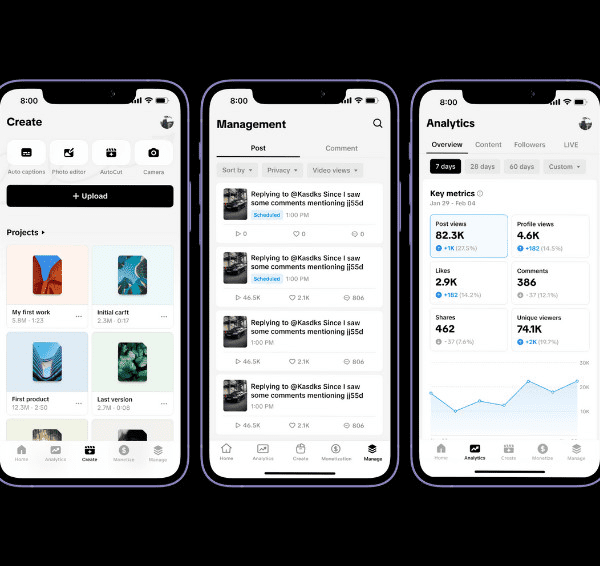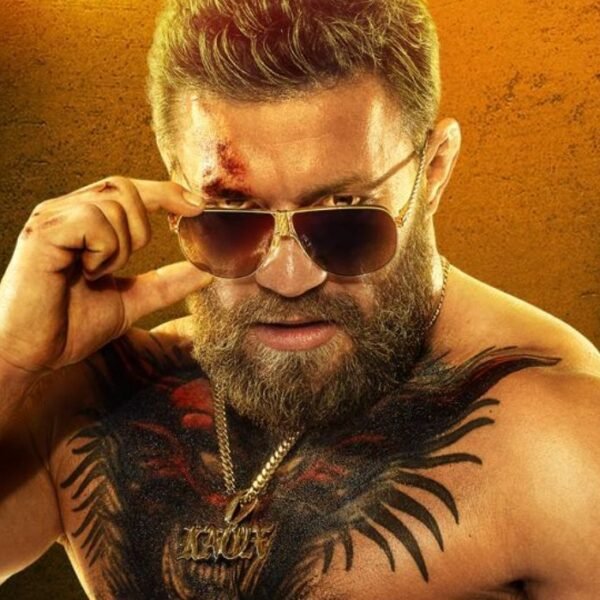Summary
- MASH was an ensemble show that convinced audiences to care about each new actor introduced, creating investment and a lasting impact.
- The exit of MASH cast members kept the show interesting without alienating viewers, showcasing the importance of character dynamics.
- Hawkeye’s role, portrayed by Alan Alda, impacted the storytelling of MASH and highlighted the importance of character growth and moral complexity.
Alan Alda’s performance as Hawkeye on MASH defined the series, but the other main characters on the hit TV show were just as likable and compelling. However, not every role on the show was equally charming, as there had to be foils for each character. Where characters like Hawkeye and Trapper (Wayne Rogers) flouted the rules of the military and pulled pranks, there had to be equal amounts of strictness to give them something and someone to chafe against. The misdeeds and practical jokes of certain characters might have disheartened some viewers, but they gave the show its edge.
However, in its heart,
MASH
was an ensemble, and the series consistently convinced the audiences to care about and invest in each new actor who was introduced.
The MASH cast exits made the show last as long as it did and kept the stories interesting without alienating the audience. Hawkeye was inarguably the most important character, and Alda impacted the storytelling of the show through his work on the writing and directing teams. However, in its heart, MASH was an ensemble, and the series consistently convinced the audiences to care about and invest in each new actor who was introduced. The likability of these characters is part of what made viewers tune in to MASH, but the antagonists were just as important in creating the conflict.
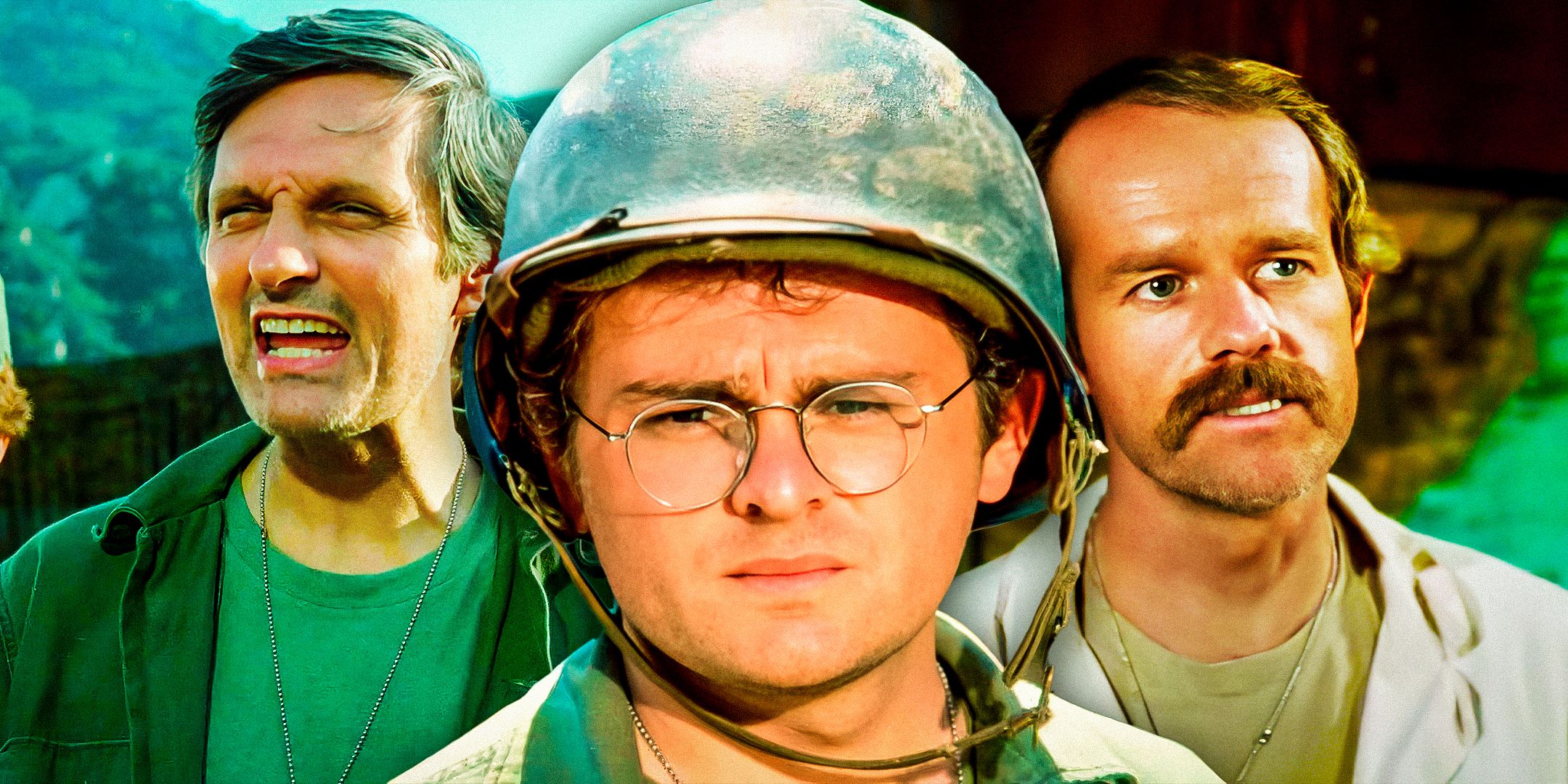
Related
10 Most Rewatchable Episodes Of MASH That Never Get Old
MASH is one of the most iconic shows of the 20th century, and the most enduring episodes of the series demonstrate what makes it relevant today.
11 Frank Burns
Played by Larry Linville
He was the man who always shut down Hawkeye’s schemes and turned him into higher authority, which is inherently an impossible position.
Frank served a clear purpose for the first few seasons of MASH, and Larry Linville did a great job bringing the character to life. However, MASH needed to lose Frank’s character to evolve, as the bumbling characterization of his role cemented the show as a comedy rather than a crossover hit into drama. Linville had the difficult job of portraying the perpetual buzzkill that was Frank. He was the man who always shut down Hawkeye’s schemes and turned him into higher authority, which is inherently an impossible position. Frank’s funniest moments always positioned him at the butt of the joke.
The worst part of Frank is that he believes more in following protocol and places the importance of military hierarchy above the lives and happiness of others. In a show that was created to critique the Vietnam War and war in general, this was never going to be a popular stance. By the time his character was written off in MASH season 5, audiences had had enough of Frank, and the series didn’t need him anymore. It was made clear that the true antagonist was human conflict, not an annoying coworker.
10 Charles Emerson Winchester III
Played by David Ogden Stiers
As a replacement for Frank, Winchester was a strong choice, as he fulfilled a similar role but was able to blend into the dramatic arcs of the series with greater ease. However, he’s overall more sympathetic than Frank, as his pompous nature is a cover-up for his insecurities and fear of being killed in action. It’s also easier to side with Winchester as he’s a much more competent surgeon than Frank and can show his compassionate side, which Frank would keep hidden at all costs.
Winchester was able to balance his antagonistic traits with his deeper, more personal attributes, which demonstrated to the audience there was more to him than meets the eye. A show like MASH can’t work without someone who fills the straightedge role to contrast Hawkeye, but Winchester handles this better than Frank. Winchester isn’t one-dimensional, and even when he’s unlikable, it is undercut by his more understandable qualities. Learning about his family in Boston and his connection to them was also a sweet attribute.
9 Trapper John McIntyre
Played by Wayne Rogers
It’s difficult to get a full read on Trapper, as he was on the show for only a brief three seasons and never had the chance to evolve or display the growth that other characters did. The problem with Trapper is that he has all of Hawkeye’s cheekiness and penchant for misdeeds but not enough of his redeeming charm. Trapper was written to be closely comparable to Hawkeye. So, when compared to the more sympathetic protagonist, it becomes challenging to like Trapper. If he had become more of his own person, things might have been different.
While no character on the show is immune from being described as sexist, it’s particularly apparent with Trapper.
While no character on the show is immune from being described as sexist, it’s particularly apparent with Trapper. When he starred in the series, Hawkeye leaned further into these chauvinist characteristics. Additionally, Trapper’s exit on MASH was one of the saddest parts of the show, as he left without saying goodbye to Hawkeye. This abrupt departure was a sour note to end his character arc, cementing him as a bittersweet character when he could have been sorely missed.
8 Maxwell Q. Klinger
Played by Jamie Farr
Klinger is a somewhat controversial figure on MASH, as his attempts to be kicked out of the army resulted in the series mocking the fact that he dressed in women’s clothes. However, this is a stronger indication of the political and cultural views about the LGBTQ+ community in the 1970s rather than the character himself. As the series progressed, MASH moved away from this angle of his character and delved deeper into who he was as a person, allowing him to take on a bigger role after Radar left in season 8.
Though he wasn’t a surgeon, Klinger made himself available to the doctors and helped out as much as he could across the show. He was a good source of comic relief outside of Hawkeye and had strong one-liners that released the tension in high-stakes moments. If it wasn’t for the problematic overtones of the character, Klinger would be higher on the list, but he shouldn’t be boiled down to the issues that were rampant on TV throughout the 1970s and ’80s.
7 Sherman T. Potter
Played by Harry Morgan
Where Henry was more like a playmate and friend to the characters, Potter was a father figure and soon became a source of safety and security for those in the 4077th.
It was always going to be difficult for any actor or character to fill Henry Blake’s shoes after he left MASH. However, the series was smart to make Potter’s characterization completely different but also likable enough that the audience wanted to keep him around. Potter was a classic commanding officer and came down harder on the lax atmosphere of the 4077th. Though Hawkeye and the others grew to respect and love him, it took some time for everyone to come around in the wake of Henry’s loss.
However, though he was tough, Potter was always fair and proved himself to be an amazing surgeon, which was the quickest way into the hearts of the unit. Where Henry was more like a playmate and friend to the characters, Potter was a father figure and soon became a source of safety and security for those in the 4077th. However, he showed his vulnerability as well, hinting that in his past, he could get up to hijinks like Hawkeye and B.J.
6 Father John Patrick Francis Mulcahy
Played by William Christopher
Bringing religion into the Army is a difficult job, but Father Mulcahy remained one of the characters with the strongest moral code on MASH. Though even he wasn’t immune to doubts and despair, he was overwhelmingly there for the other characters on the show and put aside his own needs for those of others many times. It was often Father Mulcahy who spoke with patients just before their deaths, putting him close to the most emotional parts of the series. In this way, he was just as brave and selfless as the doctors.
While he could preach occasionally, MASH was careful not to paint Father Mulcahy as an annoyance or a figure that represented guilt. When the other characters questioned his religious fervor or chafed against the idea that God was there for them in such dire times, Father Mulcahy didn’t punish them or further their resentment. He never confined himself to simply being a religious influence on the 4077th and pitched in whenever needed, going beyond the call of duty.
5 Henry Blake
Played by McLean Stevenson
Henry Blake’s death on MASH was a turning point for the show and indicated its movement into the comedy-drama territory that would define it. Though he and Trapper left at the same time, MASH chose to reveal that Henry died while leaving Korea, casting a dark shadow over his supposed return home. Not only was this one of the most significant losses the characters face, but it also couldn’t have happened to a more well-loved character. Even though Henry was the commander of the 4077th, he was always game for a laugh and even took part in Hawkeye’s hijinks.
He fostered a community of support and joy amidst the dire circumstances of war.
Even though he was only on the show for three seasons, Henry set the tone for how leadership would be dealt with in the story and didn’t fall into the tired archetype of a misanthropic and unlikable commanding officer. He fostered a community of support and joy amidst the dire circumstances of war. Had Henry been written to be an unhappy and rude man, it would have altered the narrative and made it impossible for some of Hawkeye’s important jokes to take place.
4 Margaret “Hot Lips” Houlihan
Played by Loretta Swit
Alongside Hawkeye, Margaret was one of the few characters who was on MASH from the beginning to the end. At first, Margaret was lumped into the same category as Frank, as the show paired them off romantically and in the work setting. However, Margaret’s attachment to the rules and her desire to follow protocol didn’t stem from a lack of individual morality or desire for power. She opposed Hawkeye’s pranks and laissez-faire attitude because she cared so deeply about the lives the doctors were saving and believed in her purpose as a nurse.
Additionally, as the seasons progressed, Margaret changed and served a pivotal role in some of the most dramatic episodes of the show. She also had the important and precarious position as one of the few female characters on the show, and the only female lead character. In the 1970s, when the show began, second-wave feminism was just recently taking hold, and to this day women on television are pegged as dislikable no matter what they do. Margaret is a complex and fully developed character who deserves recognition for her part in the story.
3 B.J. Hunnicutt
Played by Mike Farrell
While he didn’t reach the charismatic heights of Hawkeye, B.J. was kinder and more empathetic than Trapper.
After Trapper left, a hole was left in the show, as Hawkeye’s actions and games only work if he has a partner in crime. In many ways, not only did B.J. successfully fulfill this role, but he also expanded it and became a more compelling character than Trapper was. While he didn’t reach the charismatic heights of Hawkeye, B.J. was kinder and more empathetic than Trapper. Additionally, where Trapper was competitive and egged Hawkeye on to give in to his darker impulses, B.J. was a more mature and grounding force, and there was Hawkeye in his most difficult moments.
While B.J. was still known for playing his fair share of pranks, they were never mean-spirited or done with the intent to harm anyone. It’s not entirely fair to draw a direct comparison between B.J. and Trapper, and the humor of each character was written differently. As B.J. was on the show for longer, he endeared himself to the audience and the other characters more clearly and had the chance to go through the character development that Trapper never did. Not to mention, his final goodbye to Hawkeye is one of the most heartfelt parts of the show.
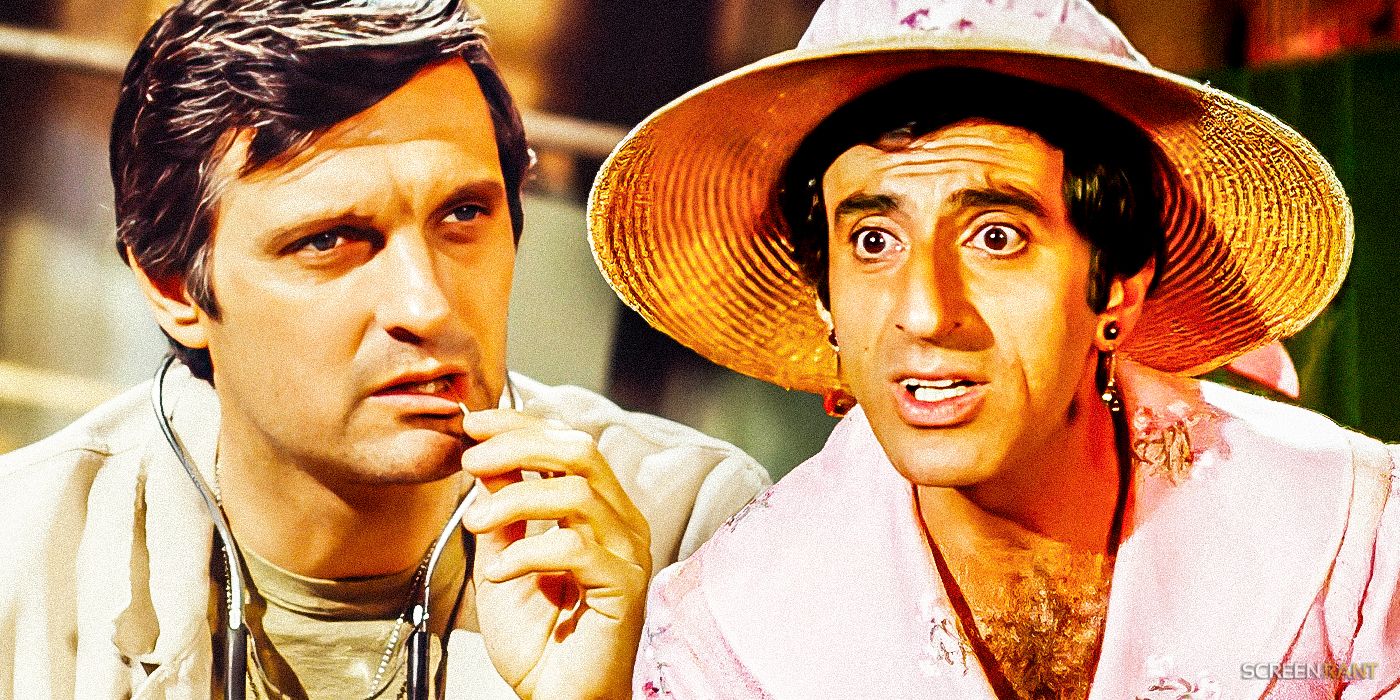


Related
Only 2 MASH Actors Appeared In The First & Last Episode Of The Show
MASH ran for 11 seasons and saw many characters come and go, with only two actors appearing in the first and final episodes of the show.
2 Walter Eugene “Radar” O’Reilly
Played by Gary Burghoff
Attempting to dislike Radar is practically impossible and an opinion that’s unpopular with almost all fans of the show. When Radar left in season 8, it dramatically altered the dynamic of the show’s characters, as he had been an essential grounding force throughout the series. Though the exit of Henry Blake was especially hard on Radar, as their relationship was a hallmark of the show, Radar successfully evolved past this change. Compared to the suave and devil-may-care Hawkeye and B.J., Radar was frequently positioned as the younger brother archetype.
However, several key episodes demonstrated how much more Radar was than a clerk, and demanded that the other characters treat him with respect. Radar was never positioned as the butt of the joke the way characters like Frank were. However, he was somewhat on the fringes of the so-called “cool kids” of the 4077th, which made him sympathetic to the viewer. Radar was closer to a stand-in for the audience and one of the most relatable characters on the show.
1 Benjamin Franklin “Hawkeye” Pierce
Played by Alan Alda
Even in his most infuriating moments, Hawkeye is the undeniable heart and soul of MASH, and this wouldn’t be possible without Alda. Hawkeye is the protagonist of the series, so it makes sense that the show would strive for the audience to enjoy watching his exploits, but there are plenty of well-received shows that position the main character as a villain or morally dubious. There’s no question that there are instances of Hawkeye going too far in his disobedience and hurting those close to him, but it’s the way he makes amends that singles him out as a good person.
Some of the most dramatically intense episodes of the series revolve around Hawkeye’s emotional journey and the effect that being at war has on him.
The truest test of a character’s morality is how they respond and fix the wrongs they do, not that they never mess up or falter. Additionally, when the chips are down, and, it’s time for Hawkeye to get serious, most often in the operating room, he doesn’t hesitate to put the lives of others above himself. Some of the most dramatically intense episodes of the series revolve around Hawkeye’s emotional journey and the effect that being at war has on him. MASH successfully builds empathy and love for Hawkeye in every possible instance.







